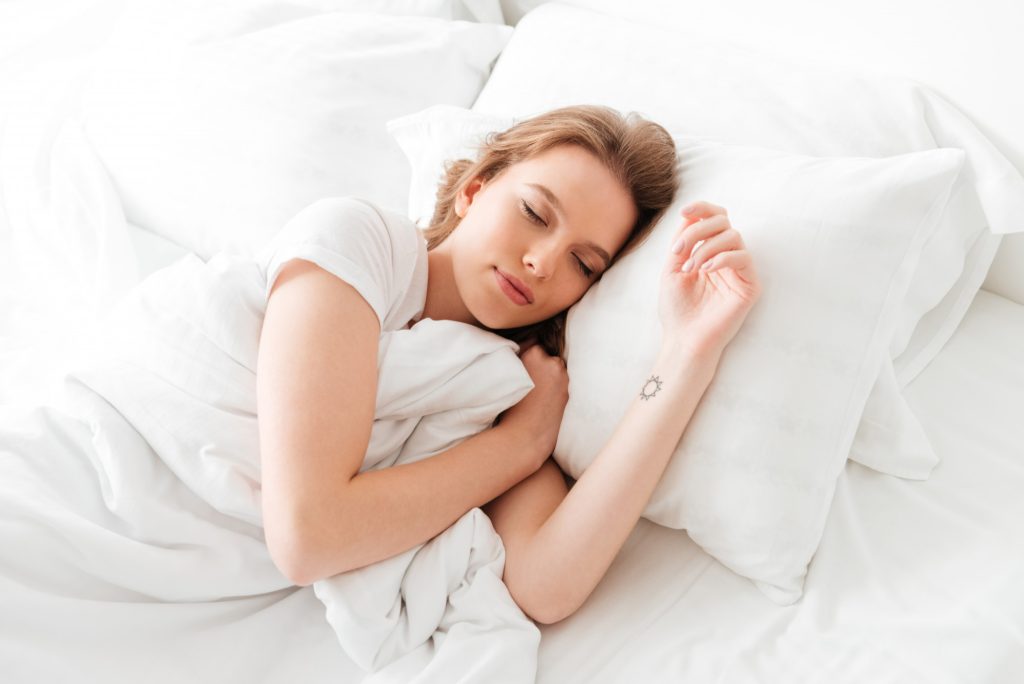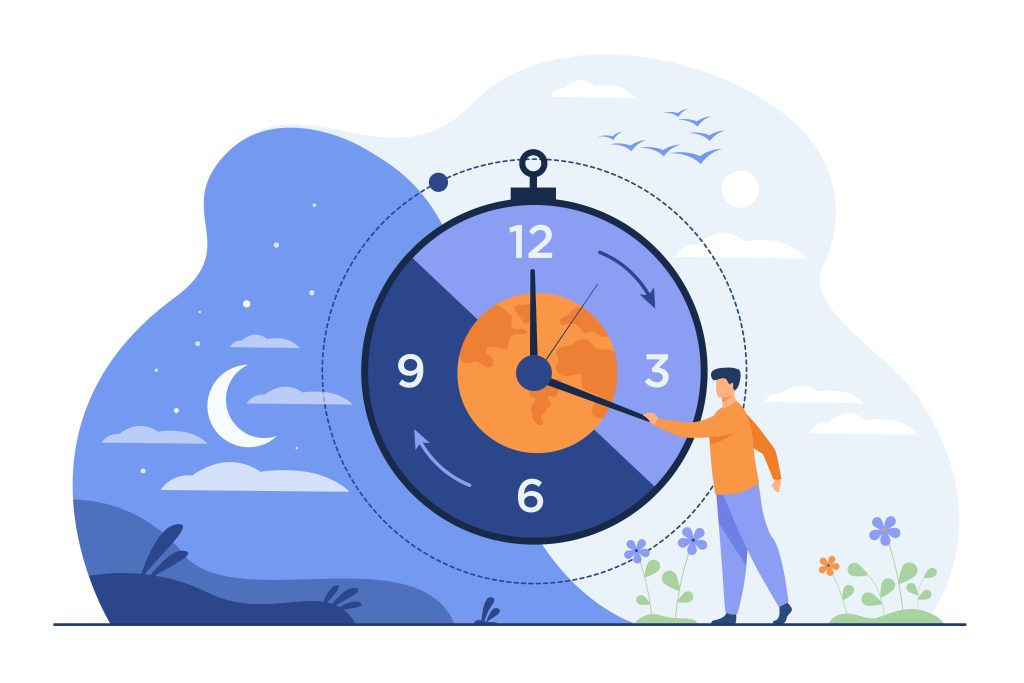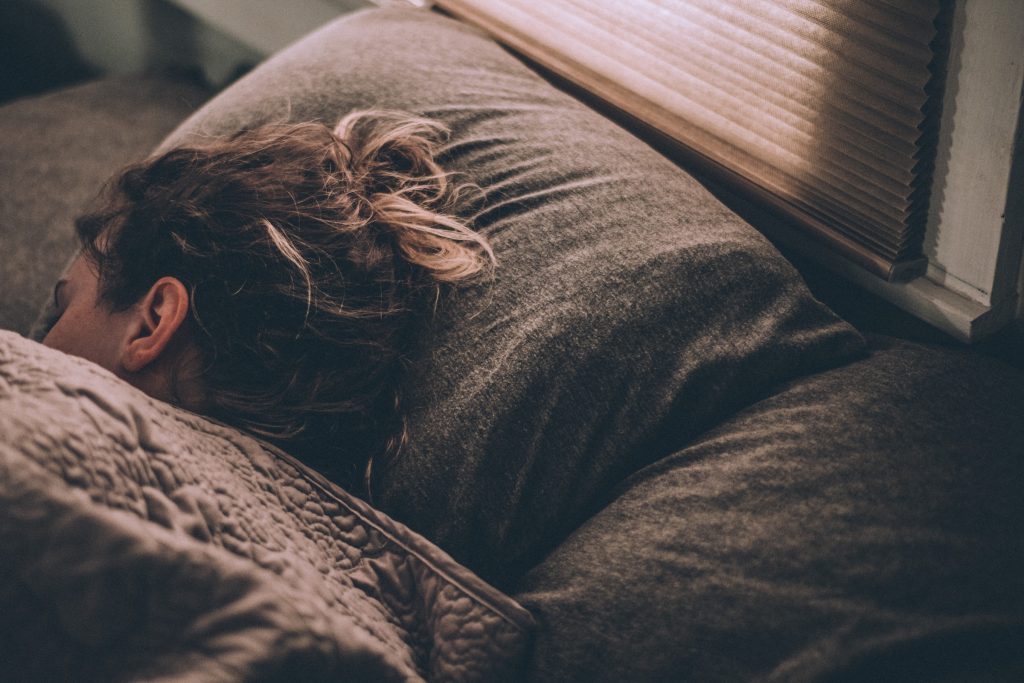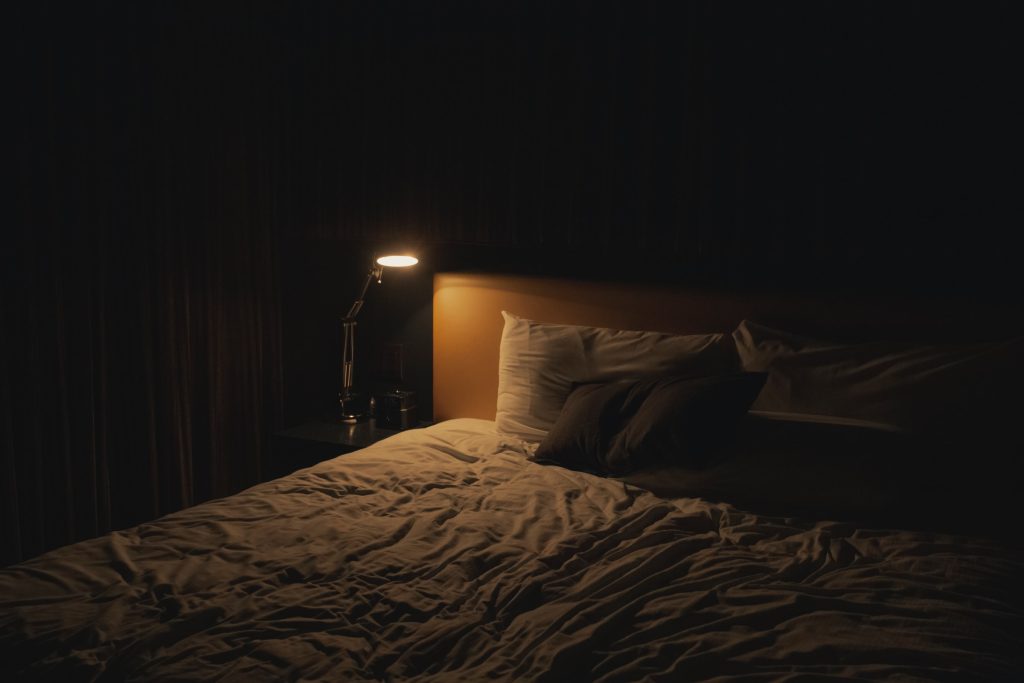
Image by Freepik
The idea of sleeping appears straightforward to many people. After closing your eyes and having a short dream, you awaken eight hours later feeling rejuvenated. But for some people, it might be difficult to try to get a good night’s sleep. Let’s talk about 5 stages of sleep…
With its several phases, shifting brainwaves, and myriad known and undiscovered roles, sleep is really rather complicated. Here are some recommendations to help you obtain a better night’s sleep as well as what is known about the stages of sleep and the factors that may impact them.
What is a Sleep Cycle?

Image by Freepik
Your body cycles through various stages of sleep each night. Brain wave patterns, eye movements, and muscular tone are just a few of the distinctive qualities that each level has. The sleep cycle is the collective name for these phases.
Your sleep cycle is governed by your body’s circadian rhythm. The hypothalamus in your brain produces the circadian rhythm, which serves as your body’s internal clock.
Your circadian rhythm affects the following, in addition to your sleep cycle:
- Physical exercise
- Mental health
- Consumption of food
- Temp. of the body
- Tone of muscles
- Secretion of hormones
Non-rapid eye movement (NREM) sleep and rapid eye movement (REM) sleep are the two kinds of sleep that make up your sleep cycle (REM). The four separate phases of NREM are referred to as Wake, N1, N2, and N3.
As you sleep, these stages of sleep are repeated in your brain. First cycles typically last between 70 and 100 minutes, with subsequent cycles lasting up to 120 minutes. Most people have an increase in REM sleep as the night goes on, and N3 may sometimes completely vanish.
What phases of sleep are there?

Image by Unsplash
Using an electroencephalogram (EEG), a medical equipment used to track the electrical patterns of brain activity, researchers have discovered the sleep cycle and its many phases. Let’s examine the five phases of an average sleep cycle.
1. Wake
Even before you go off to sleep, the first stage of sleep starts. The waking stage is further separated into the eyes-open and eyes-closed phases. Alpha and beta brain waves are prevalent during wide-awake wakefulness. There are more noticeable beta waves. The alpha waves become stronger when your eyelids shut and you drift off to sleep.
2. N1
A transitional stage is the N1 stage. It is the lightest stage of sleep and lasts for 1 to 5 minutes on average. During this period of light sleep, a different form of wave known as low-amplitude mixed-frequency (LAMF) activity takes the place of around half of the alpha waves. Your skeletal muscles, which you use to move about, still retain some tone, and your breathing is regular. The start of non-REM sleep occurs at this stage.
3. N2
Your body temperature and heart rate begin to decrease as you fall asleep deeper, indicating the beginning of the N2 stage of sleep. In the initial sleep cycle, the N2 stage lasts around 25 minutes and lengthens with each subsequent cycle throughout the night.
4. N3
The stage of sleep known as N3 is the deepest and hardest to awaken from. Because of the delta waves seen on the EEG, it is also known as slow-wave sleep. Some people won’t be awakened from this stage by even the loud sounds. If you are awakened, you’ll probably feel cognitively clouded. Studies have indicated that those who wake up right after a deep N3 sleep have moderate cognitive deficits for 30 to 60 minutes.
Throughout this phase your body will:
- Restore and generate new tissue
- Construct bone and muscle
- Boost your immune system
Researchers are investigating methods to improve cognitive function by stimulating the brain with different forms of music, electricity, and drugs when a person is experiencing slow-wave sleep. Although further research is required, stimulation has enhanced performance across several cognitive areas. This stage effects sleep quality and mental health.
5. REM sleep
The phase of sleep when dreams occur is called REM sleep. Your breathing becomes less regular at this point. Except for the eyes and diaphragm, the skeletal muscles are at rest and immobile. Surprisingly, your EEG would resemble that of an awake individual at this point. About 90 minutes after falling asleep, REM begins, and it lasts all night.
The first accounts of REM sleep were regarded with suspicion by researchers. Scientists now realize how crucial REM sleep is to how the brain works. Although there are numerous possibilities, scientists still don’t fully understand how REM works or how or why people dream.
What influences the various sleep stages?

Image by Unsplash
These phases of sleep don’t always function as intended. Some individuals may have insomnia or other sleep difficulties as a result. The stages of sleep are affected by a variety of factors.
1. Medical Issues
Your sleep patterns may be impacted by a variety of medical issues. These consist of:
- Heart problems like heart failure
- Neurological problems like degenerative disorders, restless leg syndrome, and central sleep apnea
- Endocrine disorders including pregnancy, diabetes, or hyperthyroidism
- Respiratory illnesses such as chronic obstructive pulmonary disease, asthma, and obstructive sleep apnea (COPD)
- Problems of the digestive system, such as acid reflux
- Musculoskeletal diseases including fibromyalgia, arthritis, or any other kind of persistent pain
2. Mental Health
Here are the reasons why mental health is gonna be more important nowadays. The way your body transitions through the phases of sleep might also vary as a result of mental health issues and medications:
- Depression may make it harder to fall asleep, keep you awake at night, reduce slow-wave sleep, give you less time to enter REM sleep and make REM sleep more intense.
- Anxiety problems may make it difficult to fall asleep, maintain asleep, and wake up feeling exhausted.
- Nightmares caused by post-traumatic stress disorder (PTSD) may be horrifying and realistic.
- Antidepressants may disrupt your typical REM sleep cycles.
- In particular, elderly persons may have rebound sleeplessness after quitting benzodiazepines.
4 Basic Steps To Treat Insomnia Yourself
3. Age
The following factors affect how your sleep patterns change with age:
- Getting to bed sooner
- Decreased sleep time
- More regular naps throughout the day
- More frequent nighttime awakenings
- Fewer slow-wave naps
Age-related variations in sleep are common. In reality, the majority of these changes take place between early and middle adulthood. Age-related variations in sleep are influenced by alterations in the circadian rhythm as well as the quantity and pattern of hormone release associated with sleep.
How to promote more restful sleep?

Image by Freepik
There is emerging evidence that inadequate sleep is linked to negative physical & mental health outcomes, including age-related cognitive deficits in older persons, thus emphasis is being given to sleeping more and more.
Adults typically need 7-8 hours of sleep every night. More is required for kids and teens. Elderly people may sleep less at night, but they may still need to make up for the lost time by taking naps throughout the day.
If you are having trouble sleeping at night, there are several things you may try.
1. Reduce your Stress
You may find it simpler to fall asleep if you can calm your thoughts. Try keeping a diary, practicing relaxation methods, or finding other peaceful things to perform two hours before going to bed. Stress is a common reason why circadian rhythm breaks.
2. Change your Behavior
To increase the likelihood that you will be exhausted when it is time to go to bed, try to be more active throughout the day and avoid naps. Also reducing your intake of alcohol, nicotine, and caffeine might be beneficial. Your mind and body may be taught to wind down for bed with the aid of a sleep regimen.
3. Avoid Focusing on the Ceiling
You can’t push yourself to sleep; doing so will just make you angry. If after 30 minutes you still can’t sleep, walk to another room and engage in a peaceful activity until you do. Try again after that if it doesn’t work immediately away before retiring to bed.
Everybody has days when they “simply need their coffee.” The ability to confront such refreshed days may be achieved by examining your overnight habits (such as heart rate and body temperature) and enhancing your sleep. If you have trouble getting up in the morning you can install the Alarmy app and kickstart your day with some morning walks or squats maybe.
Best alarm clock with 4.8 stars and 430K reviews – Install Alarmy



